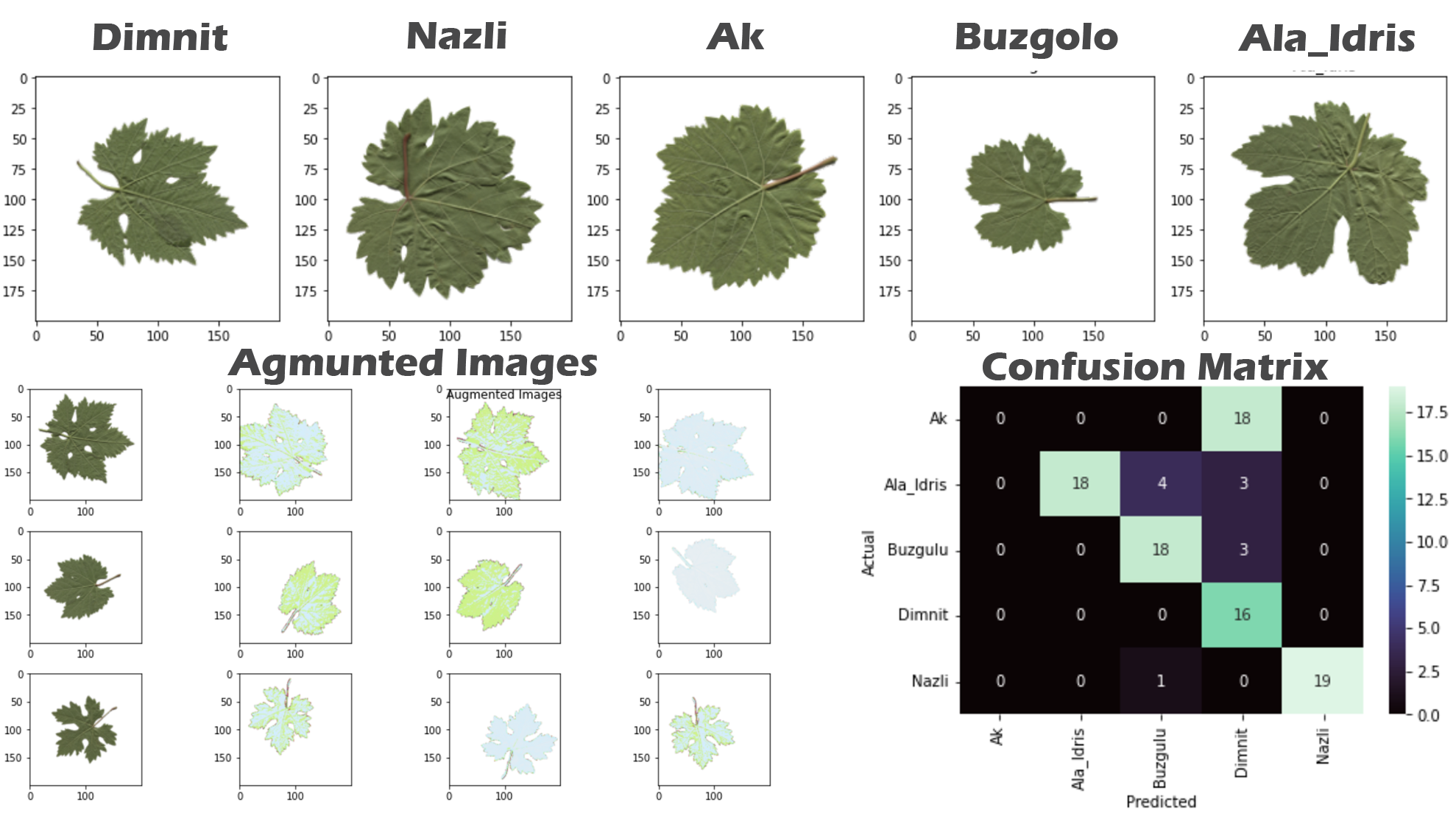Grapevine Leaves Classification
This project focuses on classifying grapevine leaves into five distinct classes using advanced techniques like transfer learning and autoencoders. By harnessing pre-trained models, we aim to enhance classification accuracy while exploring the effects of dimensionality reduction and data augmentation through image generation. Our evaluation method employs 10-fold cross-validation for robust results.
You can see the project code along with the work report on GitHub.
Libraries and Frameworks Used
- PIL: Python Imaging Library for image manipulation
- pandas: Data manipulation and analysis
- numpy: Numerical computing
- tensorflow: Deep learning framework
- matplotlib: Data visualization
- scikit-learn: Machine learning
- keras: Deep learning
- seaborn: Statistical data visualization
Key Sections
Data Preparation: This section involves loading the grapevine leaves dataset, organizing the data, and creating a structured dataframe for analysis.
Data Augmentation: We employ various transformations to augment the images, diversifying the training data and improving model generalization.
Autoencoder Implementation: We construct an autoencoder model with multiple layers to perform dimensionality reduction.
Model Training: The pre-trained models (VGG19, ResNet50, EfficientNetB3) are trained using transfer learning techniques on the grapevine leaves dataset.
Model Evaluation: The trained models undergo rigorous evaluation through 10-fold cross-validation, and accuracy is the primary metric.
Results Analysis: Performance analysis includes the use of confusion matrices and visualizations to gain insights into model behavior.
Image Generation & Testing: Additional data samples are generated for further model testing.
Model Accuracy
VGG19: 69% ResNet50: 69% EfficientNetB3: 76% EfficientNetB3 after image generation: 92%
These findings showcase the significant performance boost achieved by implementing image generation techniques with EfficientNetB3, resulting in an impressive accuracy rate of 92%.



